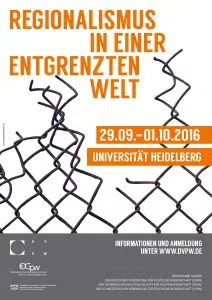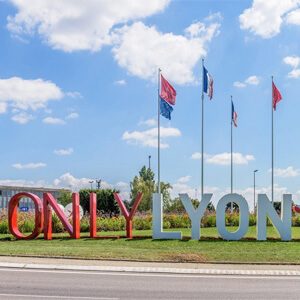Conference of the German Association for Political Science (DVPW)

At its last conference in 2015 in Duisburg, the DVPW went through rough weather. The election of the Board of Directors was highly conflictual. Finally, an interim Board of Directors was elected and has made excellent progress in preparing this conference in 2016 at Heidelberg, particularly with a reform of the voting process of the Board of Directors which is now online.
In terms of contents, the conference was dedicated to the Regionalism in all its forms. The different sections of the DVPW organized panels corresponding to their particular expertise, e. g. Comparative Regionalism, Regional Organisations, Regionalism beyond the EU, Regional integration in crisis, Regionalisation within Nation States, Regional cooperation and conflict in infrastructure projects, Regionalism in public perception, and Political representation between regionalization and Europeanisation.
The relevance for European Studies is evident in these topics. In his keynote speech Professor Frederik Soederbaum of Gothenburg University outline the different stages of development to the theoretical approach of Regionalism, which coincided to a large degree with European Studies until the 1970s. The context today is different, however, to what he called “old regionalism” roughly until 1995. Globalisation seems to have sped up with the advent of new powers, such as China, India, Russia and Brazil, usually referred to as BRIC.
Rather counter-initiatively, Globalisation brought Regionalism to more prominence while the importance of European Studies seems to be declining. Having said that, the dialogue between regionalism in the developing world and European integration continues, hopefully with mutually beneficial effects. In any case, such theoretical consideration should become interesting for the analysis of the relations between rising powers from the BRICs and the old West, particularly the EU.
Overall, the conference was held in a very agreeable setting at the oldest German University of Heidelberg.
Thomas Hoerber.




